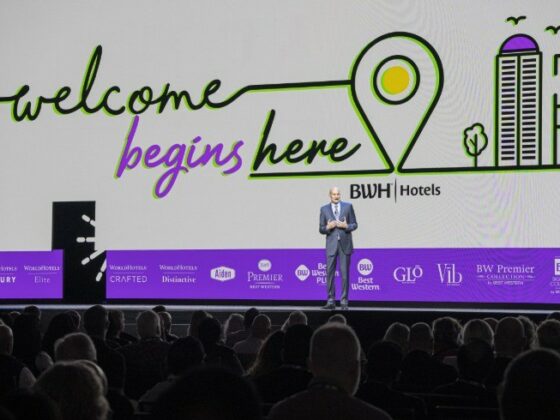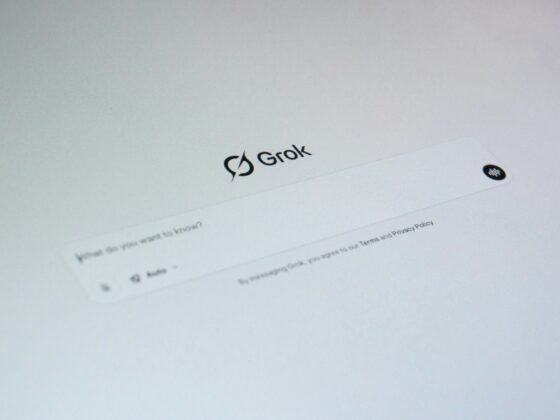
Booking and managing travel can be a complex experience with lots of factors to take into consideration. Whether guests book online, via text or over the phone, self-service can be beneficial, but interacting with an agent can also help guests navigate factors like location, availability, room type, pricing and even special accommodations.
In hospitality customer service, preserving the guest relationship and building loyalty are paramount. But as CX technology evolves, contact and service centers are being pressured to take advantage of tools like AI and automation to create more efficient processes, often in direct conflict with the idea of relationship building.
So, how can we improve efficiency and access to quality information without sacrificing the human touch?
Technological advancements pose new challenges
Lots of hospitality brands have implemented chatbots in recent years, both for booking and as a tool during or after a guest stay. These are incredibly effective for answering common questions such as getting a copy of a receipt, checking hotel amenities or scheduling a wake-up call. But for complex inquiries guests often find themselves transferring from a chatbot or automated IVR to an agent and beginning their entire inquiry over, creating a frustrating experience.
When it comes to innovative technologies, guests want a connection point with hotel staff via digital and mobile devices, but interacting through a chatbot is low on the list.
Research shows that 40% of consumers are open to using chatbots, but a roughly equal percent of people feel “unfavorable” toward them due to mistrust of AI or bots, feeling like bots won’t be able to address their needs or negative past experiences.
Additionally, some hospitality brands misuse automation, essentially trapping guests in systems that make it hard to reach a human. To improve the experience, a new approach is needed that leverages modern technologies, while still making human interactions easily accessible. AI can address this, but only when used responsibly. With a human-first approach, AI can help strike that important balance between technological efficiency and human connection.
Be human first
When AI is used with human oversight, each guest transaction can begin with a human to establish trust, move to sharing information with a bot for automation of administrative tasks, and go back to engaging in a complex conversation with a human agent if needed.
For example, a guest calls their all-inclusive resort hotel to pre-book dinner reservations a week before arriving. One of the guests has specific food allergy restrictions. When forced into an automated hotel dining reservation system, the guest will not be able to discuss which of the resort restaurants can accommodate the allergies. They may get frustrated and decide to dine elsewhere, spend time trying to reach someone live who can help, or just take a chance based on online menus. Either way, these alternatives damage the guest satisfaction, before they’ve even checked in.
In a human-first approach supported by AI, the guest can discuss the restaurant options with a live human, gather information on current menus and allergy accommodations and get a personalized recommendation on which restaurants are most appropriate. Once this information is established, the agent can transfer the guest to the automated system to handle the administrative task of scheduling the reservations.
If the guest’s needs change, or they want to speak with the agent again, they can be shifted back at any time. This human-first approach makes them feel respected, establishes responsibility, and leaves them more satisfied with the interaction.
Use AI for sentiment
AI can foster a better guest experience but importantly, it can also equip hospitality brands to be more efficient and effective. For example, AI can conduct real-time analysis of guest satisfaction by analyzing tone and body language. AI can then make suggestions for how to modify the interaction to increase satisfaction. In this way, agents can be trained by AI to be more “human” and coached on how to better meet the complex emotional needs of their guests.
New AI capabilities can also provide organizations with greater flexibility to adjust agent workflows, integrate existing technology systems, and scale operations. Advanced workforce management and scheduling can help hospitality brands optimize shift planning, staffing levels, and resource allocation so they can efficiently manage schedules, assign tasks, and monitor performance in real-time. This ensures optimal coverage and productivity, while ensuring enough availability to keep guests happy.
The future requires balance
Instead of taking a one-size-fits-all approach to AI and automation, hospitality brands should begin by defining exactly how and where AI and humans can add value based on how guests interact with the brand and the current platforms in place. By using each function in a positive way and not forcing guests into a technology-first experience, brands can create the perfect balance of AI and human support, and can better optimize every guest touchpoint, increase satisfaction, efficiencies and productivity, and decrease costs.
About the Author
Raffaella Bianchi, Ph.D. is the Global Chief Revenue Officer for Covisian Group. With over 25 years of leadership in multinational corporations, she drives long-term growth and financial stability by collaborating with boards and C-suite executives on customer experience. Renowned for leading complex transformations, Raffaella is passionate about mentoring top talent and building high-performing teams. Multilingual in English, Spanish and Italian, she has authored over 40 articles and received multiple grants from the Italian National Research Council.







